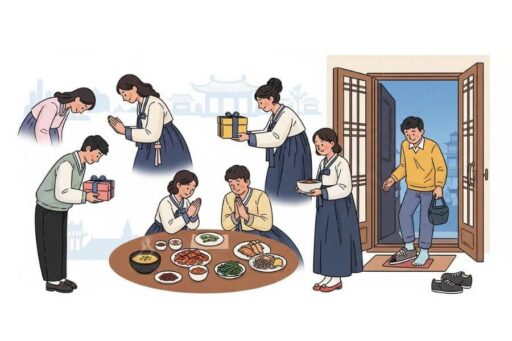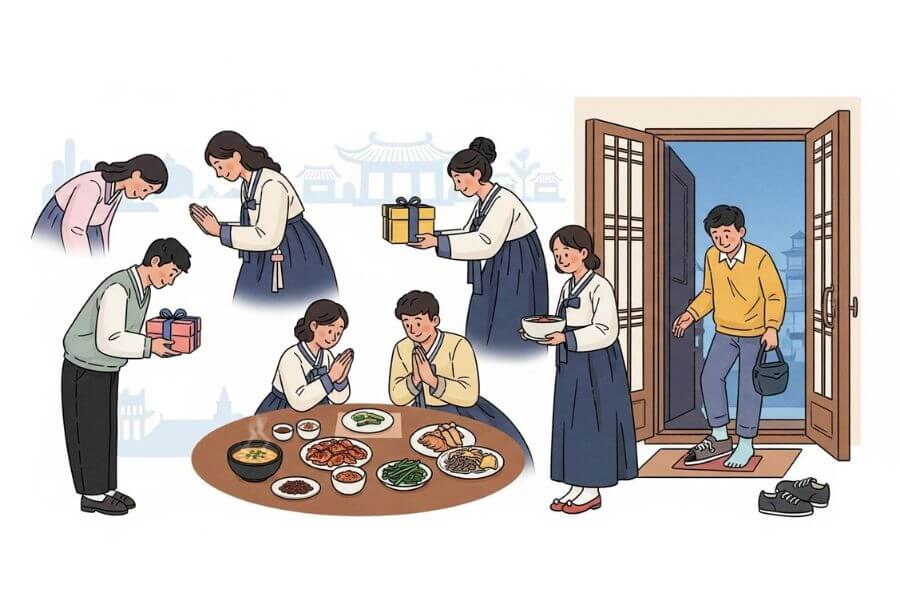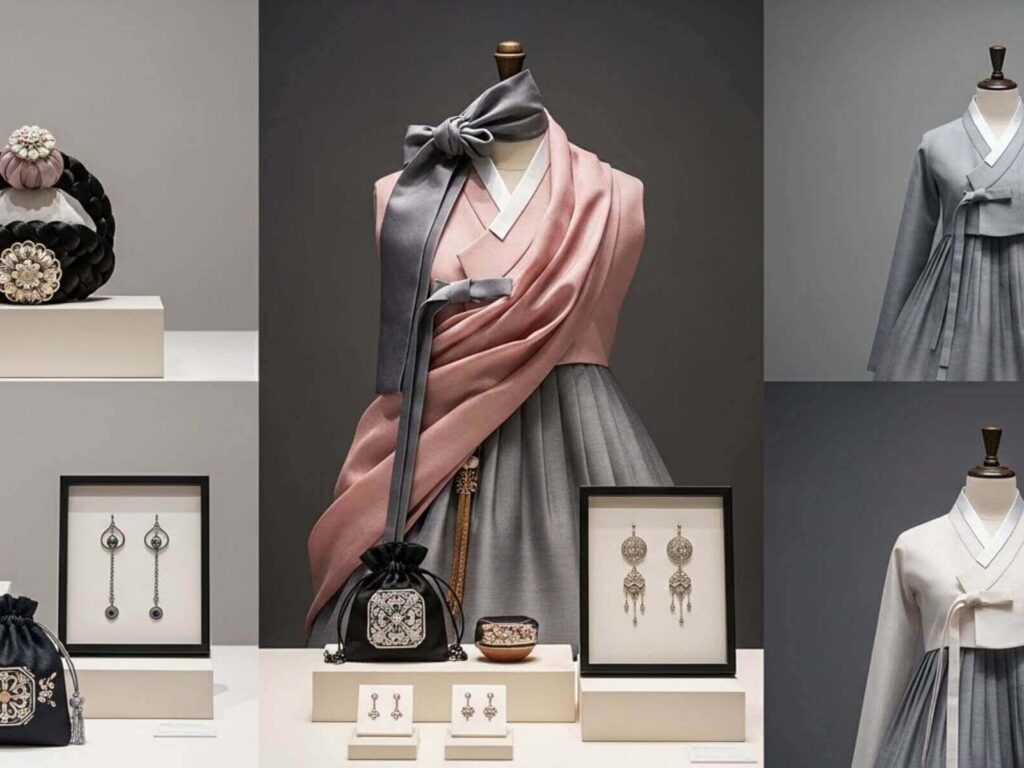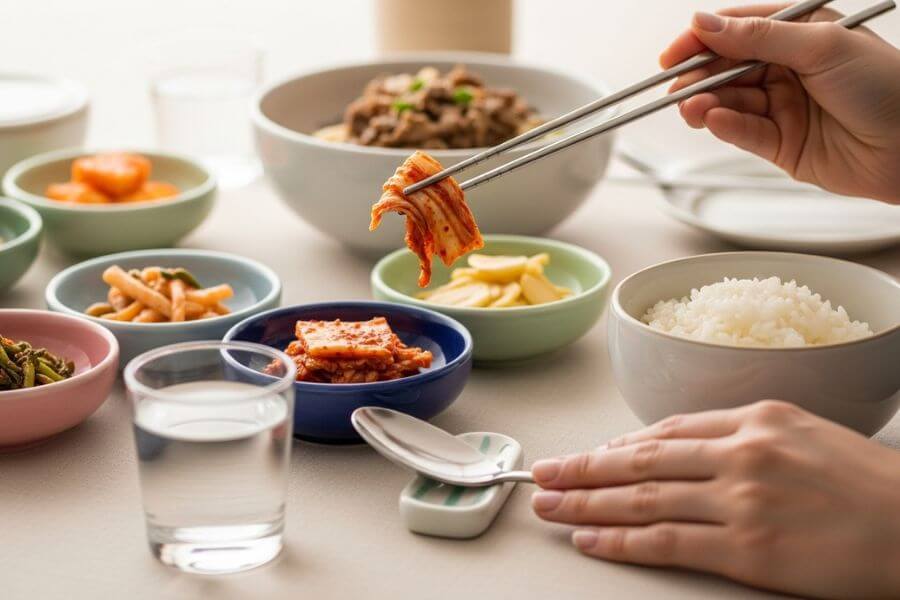Heading to Korea or interacting with Koreans can be an amazing experience, but let’s be honest, it helps to know a few social customs first. Understanding the little things about manners and etiquette can make a huge difference, helping you avoid awkward situations and showing that you truly respect the culture. Here’s a guide to the top 10 Korean manners and social customs that are good to keep in mind.
1. Bowing is a Simple but Powerful Gesture
Bowing might seem small, but in Korea, it’s a big deal. It’s more than just saying hello; it’s a way to show respect. For casual encounters, a slight bow with a nod is usually enough. When greeting elders or people in higher positions, a deeper, more formal bow is expected. Handshakes are common too, especially in business, but often paired with a bow. Getting this right instantly shows you respect Korean culture, and it’s a great way to make a positive impression.
2. Use Both Hands When Giving and Receiving
Here’s a tip you’ll notice quickly: Koreans usually give and receive things with both hands. Whether it’s a gift, money, or even a cup of coffee, using both hands signals respect, especially toward elders or superiors. It might feel a little awkward at first, but once you do it naturally, it really stands out as polite and thoughtful.
3. Respecting Elders and Social Hierarchy
Korean society places a strong emphasis on hierarchy. Respecting elders is a big part of daily life. You’ll notice it in small ways: letting older people sit first, addressing them formally, offering them the first sip of your drink, or waiting for them to start eating before you dig in. Even in the workplace, understanding hierarchy helps you navigate social interactions smoothly. Being mindful of these rules shows that you’re aware and considerate.
4. Dining Etiquette: Sharing is Caring
Korean meals are usually communal, which means everyone shares the dishes on the table. A key rule: serve others first before taking for yourself, especially elders. A few other tips: never point with your chopsticks, and never stick them upright in a rice bowl (it resembles a ritual for the deceased). Before you eat, say “jal meokgesseumnida” (I will enjoy the meal), and after eating, “jal meogeosseumnida” (I enjoyed the meal). These small phrases go a long way in showing respect.
5. Take Off Your Shoes Indoors
Stepping inside a Korean home? Take your shoes off. It’s about keeping the house clean and showing respect. You’ll see this in some traditional restaurants, temples, and guesthouses too. Wearing clean socks is a must since your feet will be visible. Being ready to remove your shoes is a simple way to fit in and show that you’re mindful of local customs.
6. Modesty in Public
Koreans value polite and modest behavior in public. Loud talking, cutting in line, or excessive displays of affection are generally frowned upon. Being aware of personal space, keeping your voice down on public transport, and waiting your turn in queues are all ways to show good manners. It might feel like small stuff, but it really reflects your respect for the people around you.
7. Gift-Giving: It’s the Thought That Counts
Gift-giving is an important part of Korean culture, whether it’s for holidays, visits, or business meetings. What matters most isn’t the price; it’s the thought behind it. When giving a gift, offer it with both hands and a slight bow. Avoid super expensive items casually, as it might make the other person uncomfortable. Small, thoughtful gifts like snacks or souvenirs are often the most appreciated.
8. Show Humility in Social Situations
Humility goes a long way in Korea. Bragging about achievements or wealth can be seen as rude. People often downplay their own accomplishments and highlight the efforts of others. Saying thank you, acknowledging mistakes, and staying modest in conversations helps build trust and harmony. Even in professional settings, being humble can earn more respect than being overly assertive.
9. Language and How You Address People Matters
The way you speak matters a lot in Korea. Using honorifics and the correct titles shows that you respect someone’s age or position. For instance, “-ssi” is polite in casual settings, while “-nim” conveys higher respect. You don’t need to be fluent, but learning a few basic phrases and polite expressions can make a huge difference and leave a great impression.
10. Respect Personal Space and Public Etiquette
Even though Koreans are friendly, they value personal space and considerate behavior. Avoid unnecessary physical contact, keep your phone on silent in public, and respect public transport rules. Standing in line properly, keeping your voice down on your phone, and being mindful of those around you are small but important gestures. These little habits show that you understand and respect Korean social norms.
Conclusion
Getting a handle on Korean manners and social customs might feel overwhelming at first, but even small gestures make a big difference. From bowing and using both hands to observing hierarchy and public etiquette, each action shows respect and helps you connect with people more easily. By keeping these ten tips in mind, you’ll navigate Korea with confidence and make a positive impression everywhere you go.





